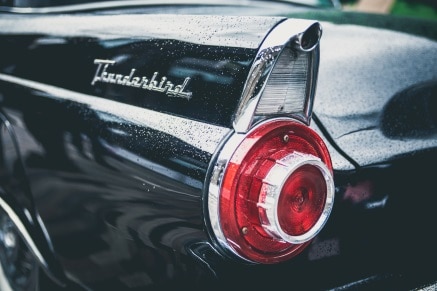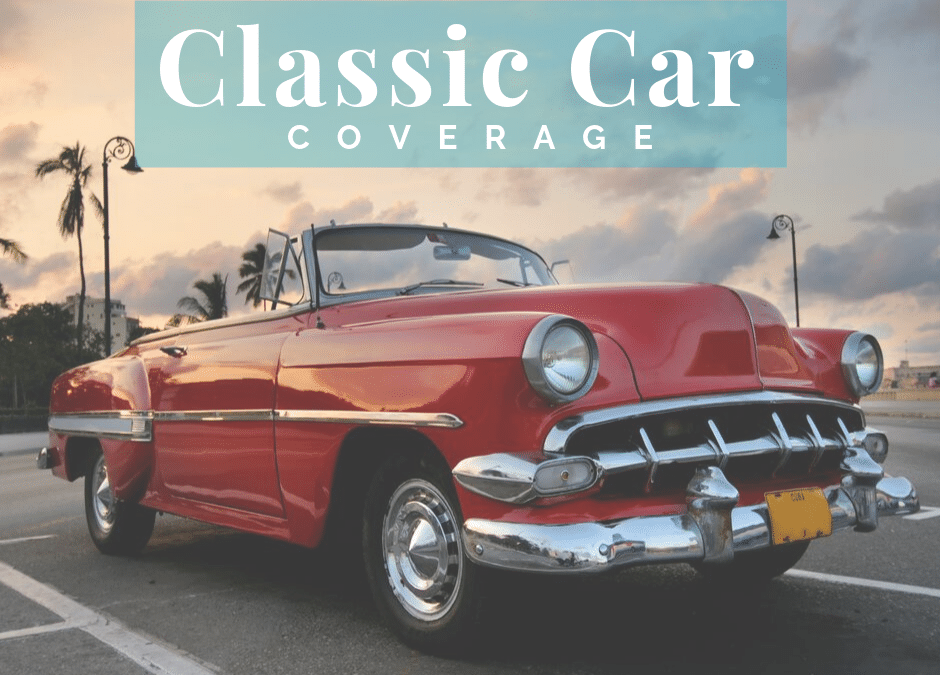There is nothing like the roar of a muscle car engine or the gleam from highly polished chrome. Classic cars evoke memories of simpler times when good ole American cars ruled the roads. They are often crowd favorites in parades and events and usually attract appreciative stares from other drivers and pedestrians during automotive rallies. classic cars
For those who love classic and collectible vehicles, fall is typically the last hurrah each year to see them. Many owners know autumn is great time to take their baby out for a drive or exhibit at a car show. The weather is more predictable and most classic car owners want to get them out a few more times before waxing them up and garaging them for winter.
If you have one of these beauties, you probably know that they need special insurance coverage. If you’ve just gotten your first classic or exotic vehicle, here’s why you need a collector car policy.
Classic cars are an investment. And collector car insurance is the best way to cover the full value if something happened to a ’57 T-bird convertible, ’69 Camaro Z28, or ’55 Mercedes 300SL Gullwing – many of which are now valued into the hundreds of thousands of dollars.

Standard auto insurance is based on actual cash value and depreciation. Meaning the older your vehicle is, the less it is worth. On the other hand, collector car insurance protects the vehicle for the full agreed value. This means it covers these desirable cars and trucks for their increased worth. Just like regular car insurance, collector auto policies offer the same coverage options: liability, collision and comprehensive, and medical pay — while also paying the full value of the vehicle that you and your insurance provider have agreed to if the worse should occur.
Here’s the best part. Collectible auto insurance usually costs less than standard auto insurance because classic and collector vehicles are normally driven less, are kept garaged. Plus, owners typically maintain them better; therefore, they are considered a better risk.
Collector car policies do come with restrictions:
- The vehicle must be stored in a locked, safe garage or storage facility
- The insured vehicle is at least 15 or 25 years old
- Limits on the miles it can be driven
- It is not used as a regular commute vehicle
- All drivers have a clean driving record
Some people don’t insure their collector vehicles because they store it or drive it so seldom, but that could be a big mistake. Classic car auto insurance pays the agreed value if the vehicle is damaged in a fire, flood, or during transportation, or if it is stolen. It also covers the higher cost of repairs if someone scratches the paint or chrome, or steals a specialty part.
Here are some important things to consider when purchasing collector car insurance:
- Choose a carrier that specializes in classic car coverage
- Pay attention to the fine print, exclusions and restrictions
- Maintain coverage when you are storing your vehicle
- Review your coverage each year to reflect any increase in value
There are many choices to insure your classic vehicle. California Casualty offers collector vehicle insurance through our partner, Condon Skelly. Unlike most classic insurance providers, Condon Skelly does not limit mileage or require seasonal coverage, while still offering competitive rates.

California Casualty is ready to help keep your beautiful baby protected and on the road. Contact one of our advisors today to arrange insurance for your classic or collectible car at 1.866.704.8614 or visit www.calcas.com/classic-car-insurance.
This article is furnished by California Casualty, providing auto and home insurance to educators, law enforcement officers, firefighters and nurses.
- Graduation – When to Remove Your Child from Your Auto Policy - May 18, 2023
- How to Prevent Catalytic Converter Theft - May 17, 2023
- How Much Does Home Insurance Cost? - May 17, 2023

